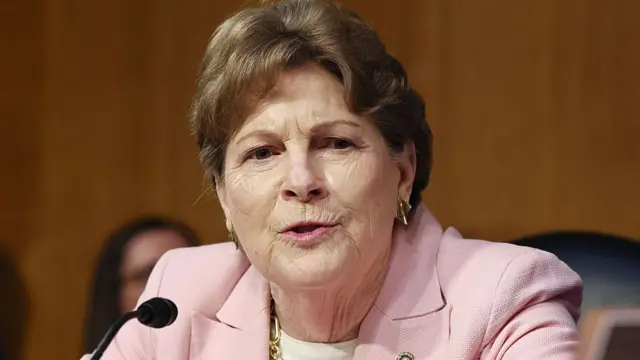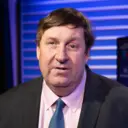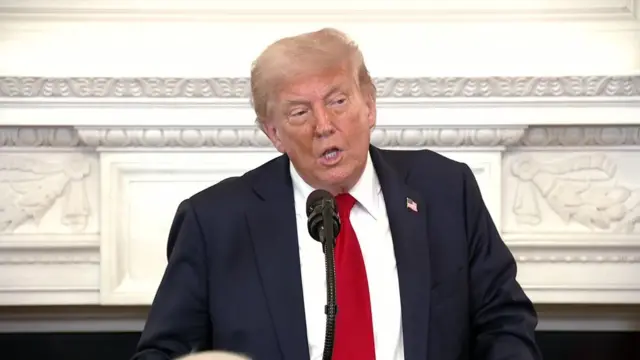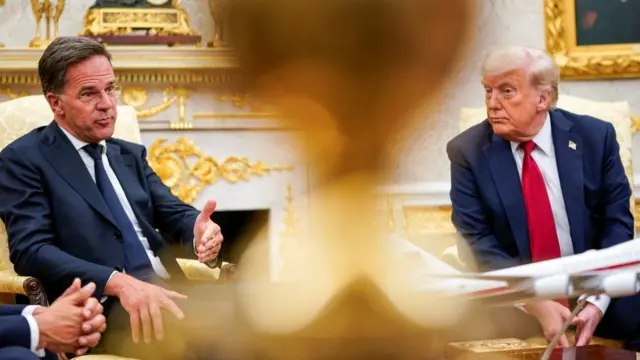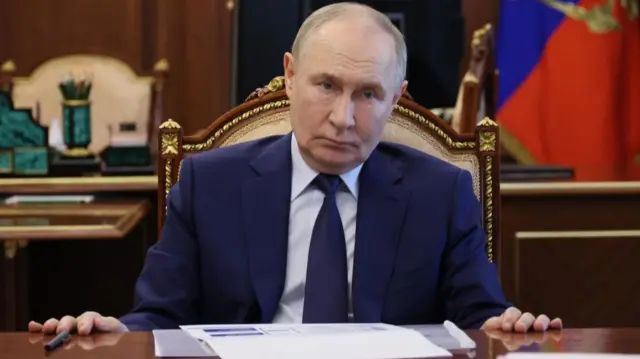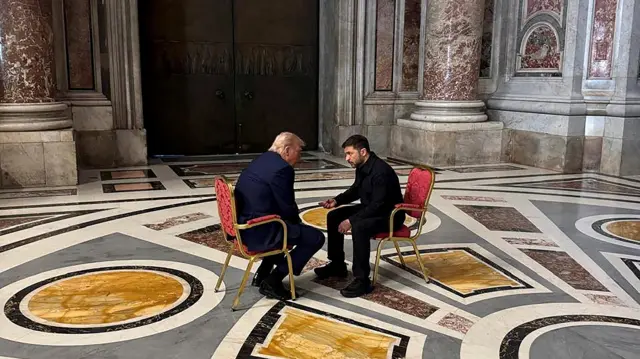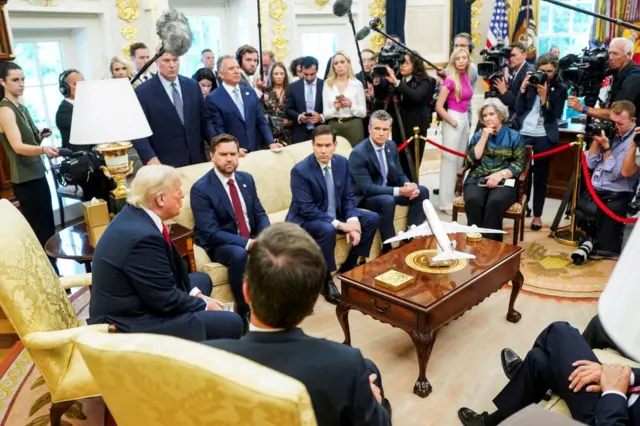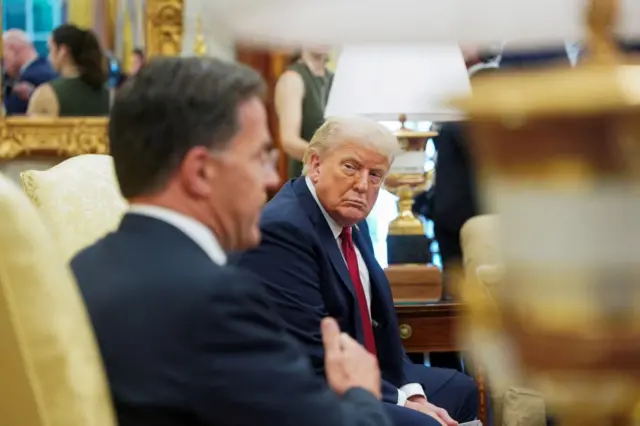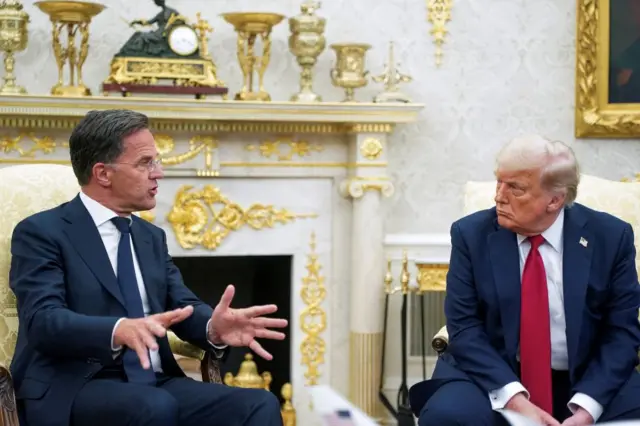More weapons to Ukraine and threats of tariffs from Trumppublished at 19:34 BST 14 July
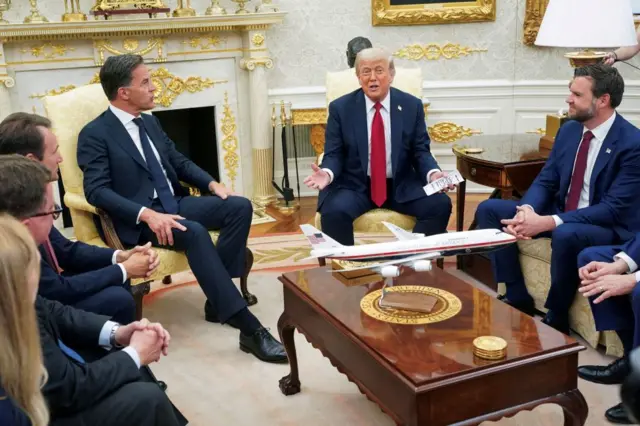 Image source, Reuters
Image source, ReutersHere's what you you need to know after Nato chief Mark Rutte's meeting with President Trump at the White House in Washington today:
A deal between Nato and Russia:
- The US president says he'll enforce 100% secondary tariffs on Russia if there's no deal between Russia and Ukraine in 50 days
- This means any country that continues to do trade with Russia will face a big tax to sell their products to the US, business reporter Dearbail Johnson explains
- Trump also confirmed that "top-of-the-line" weapons would be sent to Ukraine in an operation co-ordinated by Nato and paid for by its members
What should we make of this?
- Fifty days gives the Kremlin plenty of room for manoeuvre, but we've been here before, Security Correspondent Frank Gardener says
- This is a major shift in Donald Trump's approach to the war between Ukraine and Russia, writes Chief North America correspondent Gary O'Donoghue
- This Russia move will once again test the president's will and the loyalty of those who have taken his "America first" rhetoric to heart, North America correspondent Anthony Zurcher says
- After all the missed deadlines, Donald Trump comes up with another one for Vladimir Putin to meet, BBC Monitoring Russia editor Vitaliy Shevchenko writes
We'll be ending our live coverage shortly, but you can stay informed on all the latest developments from this story here: Trump threatens Russia with tariffs while unveiling new Ukraine weapons plan

